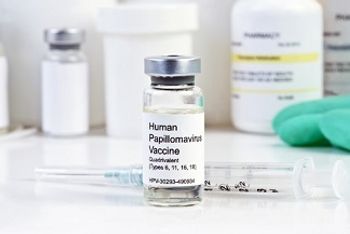
Pharmacists can play an important role in counseling patients to help prevent outbreaks.

Midwest Health System Fires Staffers for Not Getting Flu Shot: Public Health Watch

Can Taking a "Design Thinking Approach" Help Provide Solutions to Infectious Disease Issues?

Pharmacists can play an important role in counseling patients to help prevent outbreaks.

With news of a Las Vegas-area child’s flu-related death, a new study finds that kids who receive the flu shot have a much lower risk of being hospitalized for the illness.

Researchers from Columbia University have developed their own “nowcasting” model, which leverages online search trends to gain a picture of current, local influenza outbreaks.

William Schaffner, MD, lists some of the common reasons behind why individuals decide against getting their flu shots, and why they should reconsider.

Stay up-to-date on the latest infectious disease news by checking out our top 5 articles of the week.

Researchers are gaining a greater understanding of the role that human genetics plays in determining who contracts tuberculosis as well as how severely it impacts its victims.

At a recent event called "The Next Pandemic," researchers agreed that the world is not ready for the next big flu pandemic and discussed what it will take to strengthen preparedness.

Researchers have found that human papillomavirus (HPV) vaccine may also protect against recurrent respiratory papillomatosis, a rare, but incurable childhood respiratory disease.

The results of a new study may provide a basis for estimating appropriate dosing regimens of ceftolozane/tazobactam in patients with cystic fibrosis.

A recent outbreak of Legionnaires’ disease at Disneyland in Anaheim, California, shows that even the “happiest place on earth” isn’t immune to this virulent pathogen.

Joe Sliman, MD, MPH, explains how antibiotics affect the gut microbiome.

A new study suggests that village clinics are not properly dealing with the ongoing problem of tuberculosis in rural China.

Stay up-to-date on the latest infectious disease news by checking out our top 5 articles of the week.

Two new studies highlight just why the flu vaccine isn’t working and one new approach that may give way to a universal vaccine.

Remembering the links between infectious diseases such as influenza and HIV, among others, and mental health can improve patient outcomes.

A new study gleans troubling findings—four in 10 health care providers choose to go to work despite experiencing symptoms of infectious disease.

The virulent pathogen has significant individual and public health implications.

William Schaffner, MD, explains how health care providers can work towards getting patients who are aged 65 and older to receive a flu shot.

The results of a new study show that prescribing 1 antibiotic to treat community-acquired pneumonia in children may be as effective as the usual 2-antibiotic treatment, in most cases.

Researchers from The Scripps Research Institute have discovered why egg-based influenza vaccines offer a lower level of protection against H3N2 viruses.

William Schaffner, MD, discusses NFID and Sanofi Pasteur’s Flu Alert campaign, dedicated to emphasizing the importance of vaccination in adults aged 65 and older.

At this year’s annual CHEST meeting, Theravance Biopharma investigators report positive new data pertaining to VIBATIV gleaned from the TOUR study.

Tuberculosis (TB) remains the #1 infectious killer, worldwide, surpassing HIV / AIDS, according to the latest global TB report from the World Health Organization.

The plague outbreak in Madagascar appears to be winding down, but will a centuries-old ritual reverse the progress?

In case you missed them, we've compiled the top 5 articles from this past week.